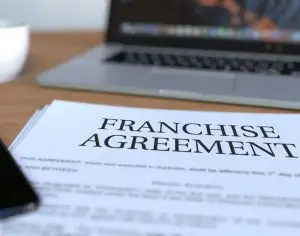Franchise agreement is the main contractual document that governs the relationship between a franchisor and a franchisee (and where a franchisee is a limited company then also the individual behind the limited company).
A franchise agreement is usually expressed to be for a fixed term, typically 5 or 10 years, depending on the franchise. As we all know, life does not stand still and sometimes it may become necessary to make changes to the document during the term of the franchise agreement. If that is the case, what should you be aware of and how should you go about making changes to the franchise agreement?
There are a few things to bear in mind:
What does the agreement say?
It is important to check what the franchise agreement actually says about making changes. Most agreements usually do. If that is the case, then it is important to follow the requirements of the agreement in order to ensure that the amendment is valid and enforceable and to reduce the risk of either party arguing in the future that the amendment was unauthorised.
Who has authority to make changes?
Does the franchise agreement specify that changes must be authorised by a managing director or a CEO? If the agreement is silent on who has authority, then you should still ensure that the change/amendment is authorised by an individual who is formally a director of the franchisor entity at the time the amendment is made. You can always check who the directors are by looking it up on Companies House.
Can the amendment be made orally or does it have to be in writing?
In England and Wales, an oral contract is still a binding contract, however, if the terms have not been documented in writing it may be incredibly difficult to prove what the agreed terms were. As such, it is always best to stick to written contracts and hence document all changes in writing. Doing so could avoid protracted arguments about whether something was agreed or not and what exactly was agreed. Memories fade, people come and go and if you don’t have any evidence of what was agreed then it would be very difficult to prove what was agreed.
If an amendment is agreed consider whether such amendment should apply to the remainder of the current term of the franchise agreement only or whether it should also apply to future renewals. Don’t assume that a change will automatically apply to future renewals because if your franchise agreement states that the terms applicable on renewal may be different, then any changes agreed during the current term may not necessarily translate into the renewal agreement or may be subject to further negotiation at that stage.
Confidentiality
Sounds obvious but if you have managed to negotiate a concession or something out of the ordinary that you may not necessarily want the rest of the network to know, make sure that both parties understand and agree that the amendment is confidential and should be maintained as such.
Finally, don’t forget the formalities. One of the essential parts of creating a valid and binding contract is the requirement of having consideration, meaning that both parties must be receiving some sort of benefit. This is usually very obvious for one party but may not be so obvious for the other. Where that is the case, the lack of consideration can be overcome by executing the document as a deed – usually meaning that the signatures are witnessed.
If in doubt, speak to your solicitor!


































